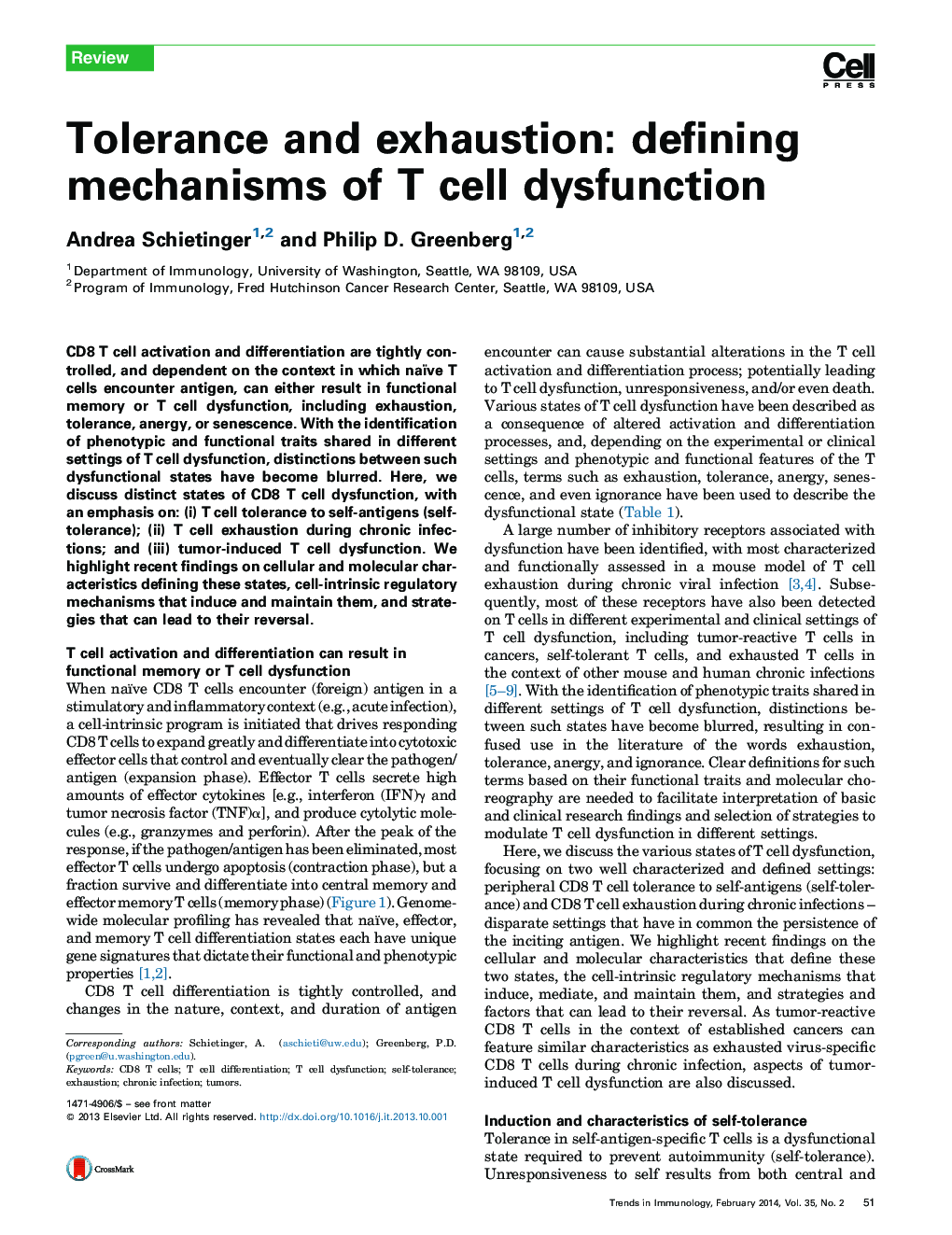| Article ID | Journal | Published Year | Pages | File Type |
|---|---|---|---|---|
| 4359882 | Trends in Immunology | 2014 | 10 Pages |
•Exhaustion and tolerance represent distinct CD8 T cell differentiation states.•These distinct states are associated with unique molecular programs.•Exhaustion and tolerance are not fixed, but flexible and plastic cell states.•Certain characteristics are epigenetically imprinted and independent from external cues.
CD8 T cell activation and differentiation are tightly controlled, and dependent on the context in which naïve T cells encounter antigen, can either result in functional memory or T cell dysfunction, including exhaustion, tolerance, anergy, or senescence. With the identification of phenotypic and functional traits shared in different settings of T cell dysfunction, distinctions between such dysfunctional states have become blurred. Here, we discuss distinct states of CD8 T cell dysfunction, with an emphasis on: (i) T cell tolerance to self-antigens (self-tolerance); (ii) T cell exhaustion during chronic infections; and (iii) tumor-induced T cell dysfunction. We highlight recent findings on cellular and molecular characteristics defining these states, cell-intrinsic regulatory mechanisms that induce and maintain them, and strategies that can lead to their reversal.
